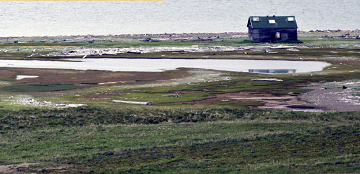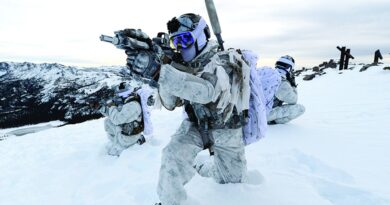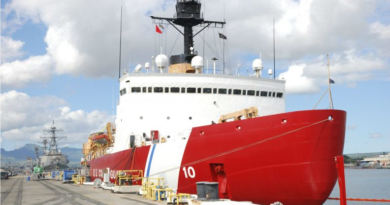Arctic security report deems Yukon relatively ‘safe, secure and prepared’
by Cate Belbin
Editor: The following comments were received in response “Report of the Yukon Arctic Security Advisory Council, November 2024” as reported by the subject article.
I concur that there is not likely to be a terrestrial attack on Canadian Arctic territory, but I do not believe that the Yukon can be considered ‘safe, secure, and prepared’ in its entirety. There are perennial questions of resources, Canadian Armed Forces (CAF) expenditure, challenges with infrastructure, etc., that I believe may preclude security. But I digress. This article has got me thinking more and more about the Western Canadian Arctic. Because Canada does not have much military capacity north of the 60th parallel, what is the role of Canada’s Pacific Fleet in the context of projecting Canadian Arctic sovereignty in the Western Canadian Arctic?
Yukon may, in part, have been deemed relatively ‘safe, secure, and prepared’ because of its geographic proximity to the United States and the preparedness of the United States, as Alaska borders Yukon. I do not want to appear as dismissing Canada’s role in the North, and I would never denigrate the CAF, but it is not unreasonable to conclude that there is some relative security because of Canada’s close defence relationship with the US and the physical proximity of Alaska.
Something that I actually really appreciate is the fact that this report refers to the ‘Government of Yukon’ as a distinct actor in Canadian Arctic sovereignty, security, and defence. I suspect, given the Government of Canada’s lack of action on Arctic issues, notwithstanding the Defence Policy Update, the territorial (and provincial) governments may have greater and greater roles to play with security and defence. Defence is a federal competency under s. 91(7) of the British North America Act (1867), but the provinces and territories have important roles to play with respect to sovereignty. In an era of ‘cooperative federalism,’ there may be more actions being taken by the provinces and territories in this realm in the future, especially with federal inaction.
Cate Belbin, B.A., J.D., LLM, is a PhD Candidate at the Schulich School of Law, Qanittaq Clean Arctic Shipping Initiative, Dalhousie University. This work is the sole opinion of the author and does not necessarily represent the views of Dalhousie University, the Royal United Services Institute of Nova Scotia, the Canadian Armed Forces or any government department or agency.




